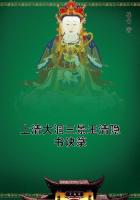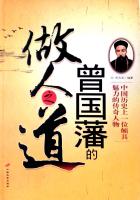THE ESTABLISHMENT OF THE NEW POLITICAL ORGAN.
In this disorganized society, in which the passions of the people are the sole real force, authority belongs to the party that understands how to flatter and take advantage of these. As the legal government can neither repress nor gratify them, an illegal government arises which sanctions, excites, and directs these passions. While the former totters and falls to pieces, the latter grows stronger and improves its organization, until, becoming legal in its turn, it takes the other's place.
I.
Principle of the revolutionary party. - Its applications.
As a justification of these popular outbreaks and assaults, we discover at the outset a theory, which is neither improvised, added to, nor superficial, but now firmly fixed in the public mind. It has for a long time been nourished by philosophical discussions. It is a sort of enduring, long-lived root out of which the new constitutional tree has arisen. It is the dogma of popular sovereignty. -- Literally interpreted, it means that the government is merely an inferior clerk or servant.[1] We, the people, have established the government; and ever since, as well as before its organization, we are its masters.
Between it and us no infinite or long lasting "contract". "None which cannot be done away with by mutual consent or through the unfaithfulness of one of the two parties." Whatever it may be, or provide for, we are nowise bound by it; it depends wholly on us. We remain free to "modify, restrict, and resume as we please the power of which we have made it the depository." Through a primordial and inalienable title deed the commonwealth belongs to us and to us only.
If we put this into the hands of the government it is as when kings delegate authority for the time being to a minister He is always tempted to abuse; it is our business to watch him, warn him, check him, curb him, and, if necessary, displace him. We must especially guard ourselves against the craft and maneuvers by which, under the pretext of preserving law and order, he would tie our hands. A law, superior to any he can make, forbids him to interfere with our sovereignty; and he does interfere with it when he undertakes to forestall, obstruct, or impede its exercise. The Assembly, even the Constituent, usurps when it treats the people like a lazybones (roi fainéant), when it subjects them to laws, which they have not ratified, and when it deprives them of action except through their representatives.[2] The people themselves must act directly, must assemble together and deliberate on public affairs. They must control and censure the acts of those they elect; they must influence these with their resolutions, correct their mistakes with their good sense, atone for their weakness by their energy, stand at the helm alongside of them, and even employ force and throw them overboard, so that the ship may be saved, which, in their hands, is drifting on a rock.[3]
Such, in fact, is the doctrine of the popular party. This doctrine is carried into effect July 14 and October 5 and 6, 1789. Loustalot, Camille Desmoulins, Fréron, Danton, Marat, Pétion, Robespierre proclaim it untiringly in the political clubs, in the newspapers, and in the assembly. The government, according to them, whether local or central, trespasses everywhere. Why, after having overthrown one despotism, should we install another? We are freed from the yoke of a privileged aristocracy, but we still suffer from "the aristocracy of our representatives."[4] Already at Paris, "the population is nothing, while the municipality is everything". It encroaches on our imprescriptible rights in refusing to let a district revoke at will the five members elected to represent it at the H?tel-de-Ville, in passing ordinances without obtaining the approval of voters, in preventing citizens from assembling where they please, in interrupting the out-door meetings of the clubs in the Palais Royal where "Patriots are driven away be the patrol." Mayor Bailly, "who keeps liveried servants, who gives himself a salary of 110,000 livres," who distributes captains' commissions, who forces peddlers to wear metallic badges, and who compels newspapers to have signatures to their articles is not only a tyrant, but a crook, thief and "guilty of lése-nation." -- Worse are the abuses of the National Assembly. To swear fidelity to the constitution, as this body has just done, to impose its work on us, forcing us to take a similar oath, disregarding our superior rights to veto or ratify their decisions,[5] is to "slight and scorn our sovereignty". By substituting the will of 1200individuals for that of the people, "our representatives have failed to treat us with respect." This is not the first time, and it is not to be the last. Often do they exceed their mandate, they disarm, mutilate, and gag their legitimate sovereign and they pass decrees against the people in the people's name. Such is their martial law, specially devised for "suppressing the uprising of citizens", that is to say, the only means left to us against conspirators, monopolists, and traitors. Such a decree against publishing any kind of joint placard or petition, is a decree "null and void," and "constitutes a most flagrant attack on the nation's rights."[6] Especially is the electoral law one of these, a law which, requiring a small qualification tax for electors and a larger one for those who are eligible, "consecrates the aristocracy of wealth." The poor, who are excluded by the decree, must regard it as invalid; register themselves as they please and vote without scruple, because natural law has precedence over written law. It would simply be "fair reprisal" if, at the end of the session, the millions of citizens lately deprived of their vote unjustly, should seize the usurping majority by the threat and tell them:















